On Tuesday, February 23, 2021, Evolve virtually attended the SMX (Search Marketing Expo) Report by Search Engine Land. Search marketing is constantly changing, sometimes on a day-to-day basis. To stay on top of critical search marketing pivots, we always strive to stay ahead of the game to ensure our client’s online content is always utilizing the best SEO practices to consistently be found during an online search and nurture user interaction.
There were two tracks for attendees: SEO and PPC. We attended the SEO track, which focused on:
- Which SEO tools you should be using
- How to effectively configure analytics tools to enhance client reports
- How to identify and fix critical technical and on-page SEO issues hindering search indexing
- Which metrics to focus on when determining SEO success
- Whether you should use Google Analytics 4 (GA4)
The Best SEO Tools
To accurately measure and analyze your SEO data, it’s important to use the right tools and use them correctly. Experts at SMX Report suggest using several different tools, specifically:
We were pleased to learn that Evolve already leverages all of the above SEO tools for our clients. There are also other tools we turn to that were not mentioned during the conference that we utilize to conduct deep-dive user behavior analysis: CrazyEgg and Mouseflow.
Throughout the conference, the speakers drove home the point that it’s not enough to pay for and “use” reputable SEO tools, they must be used in specific ways to organize and translate the data they provide into actionable items in accordance with an SEO strategy. For example, the SEO experts reiterated the importance of identifying actionable items from website/landing page audits by exporting relevant data sets from multiple tools to look at the same data sets in different ways. After the analysis is complete, you can identify specific issues such as:
- Missing SEO elements
- SEO errors or issues from site audits
- Duplicate or low-quality content
- Pageviews vs. session discrepancies
From there, you can fix these SEO issues using both technical and on-page SEO best practices. It was nice to realize our SEO practices are right in alignment with what the speakers at SMX Report were recommending.
Using On-Page and Technical SEO to Achieve Your Goals
According to the subject matter experts at XMS Report, both on-page and technical SEO needs to be monitored and updated consistently. For our Evolve SEO clients, we ensure this is done every month. This helps us keep on top of any new issues that arise due to Google search algorithm changes or new competitor dynamics affecting search results.
On-Page SEO
On-page SEO encompasses both the web page content and HTML source code of a page. To enable a web page to rank higher and be served up on a SERP (search engine results page) more readily, the page must be optimized for search to earn more relevant traffic in search engines. This is not to be confused with off-page SEO, which is controlled links and other external signals.
Below are a few ways Evolve provides on-page SEO for our clients that were mentioned during the SMX Report conference:
- Conducting content gap analysis to identify the “gap” between what search engines are finding vs. what users are finding
- Identify and implement internal link opportunities to encourage users to visit more page and assist search engines when crawling your website
- Configuring Google Analytics reports to pull specific data points (e.g. read time on a blog, to discover if the content is resonating with users)
- Analyze search query data gathered in Google Analytics (website search stats) and Google Search Console (general Google searches where users found your website in a SERP)
Another important point that was brought up several times throughout the conference was to remember that content is everything on a page, including text, images, videos, etc. Creating relevant content for SEO with the user’s intent in mind is key to rank higher on Google and drive quality traffic to your website. The options are endless for optimizing online content for SEO, which is why it is vital to have an SEO Strategy based upon specific KPIs and organizational goals.
There are many ways to find SEO opportunities. But on-page SEO is only one side of the coin.
Technical SEO
User experience is crucial and is correlated to higher search engine rankings as well as improved conversion rates. For an organization, this means showing up in search results and gaining new customers, clients, and/or partners through purchases, contact form submissions for goods/services, etc. One important aspect of SEO that ensures an organization’s online content is leveraged to the fullest is with sound technical SEO practices.
Optimizing all website content whether with the web page code, compression of images sizes, and/or web server settings can be the difference between keeping a user on a website or frustrating the user causing them to hit the dreaded back arrow on their web browser before they have a chance to convert in some way shape or form. Tried and true ways to ensure users stay engaged with website content can be achieved with technical SEO, including:
- Page speed optimization
- Mobile-first design techniques
- Schema markup for “rich” search results
Measuring and Communicating SEO Strategy Success
It can be difficult to prove the value of SEO to those who may not know much about it. So how can we best measure and communicate the success of SEO? It all starts with setting specific, realistic goals that are in line with the company’s overall goals. One way to achieve this according to SMX Report presenters was to make sure to establish SMART goals:
- Specific
- Measurable
- Attainable
- Relevant
- Time-Based
Aligning your SEO strategy with SMART goals will allow you to easily demonstrate SEO’s hand in revenue and ROI. The biggest take-away from this session at SMX Report was to make sure the metrics are explained and presented in a way that is useful to an organization. In other words, make SEO reports clearly understood by translating the data into layman’s terms that key decision-makers can understand to find value in SEO results and recommendations.
Should You Switch from Google Analytics Universal to GA4?
This session at the SMX Report conference was very affirming for us. Since the launch of Google Analytics (GA4) in October of 2020, SEOs and marketers have been hesitant to switch from Google Analytics Universal to GA4. While GA4 will eventually become the standard, per the industry experts at SMX Report, GA4 isn’t ready to be out of beta since it is still experiencing significant technical issues. So, although it’s not necessary, or advised, to switch completely over to GA4 yet, it’s a good idea to start collecting data in GA4 now so you’re able to leverage the advanced data it collects when GA4 is truly ready for prime time.
At Evolve, we have been on the same page as the experts at SMX Report’s conference. Although the tool has great potential, we feel it just isn’t there yet. As a result, since GA4’s rollout last October, we have been setting up our new Google Analytics properties for both Universal and GA4 analytics.
After attending SMX Report, we were able to take away actionable tactics to improve upon our SEO practices. Although we were already doing most of what the presenters at SMX Report were advising, we realize there is always room for improvement.
Looking to improve your search engine rankings, drive quality traffic to your website, and earn more conversions? Let us, an Akron SEO company dedicated to excellence, help you grow your business. Contact us today!


